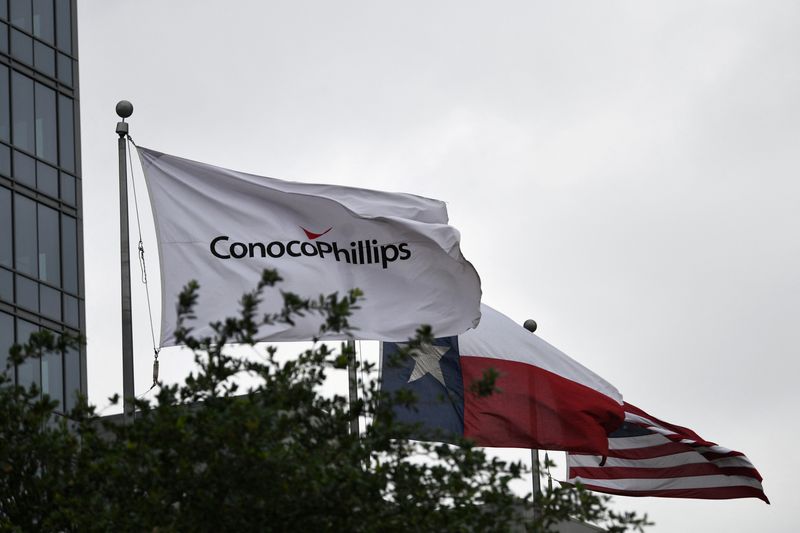By Sheila Dang and Arathy Somasekhar
HOUSTON (Reuters) -ConocoPhillips must sharpen its focus on capital discipline and investment priorities in order to regain its competitiveness against peers as oil prices and revenues fall, investors and analysts said, after the company announced last week it would lay off up to 25% of staff to cut costs.
The third-largest U.S. oil producer joins majors Chevron and BP, and the world’s largest oil service providers SLB and Halliburton, in cutting staff as increased output from OPEC+ and economic uncertainty due to unpredictable U.S. trade policy have contributed to a slump in crude prices, pushing down oil company earnings to their lowest since the COVID-19 pandemic.
Crude prices, which have fallen around 12% this year, are expected to decline again in 2026 as supply outpaces demand, according to the U.S. Energy Information Administration.
“If you’re cutting 25% of your workforce, that also tells me how inefficient things are,” said Michael Alfaro, chief investment officer at Gallo Partners. Alfaro was among the investors and analysts who told Reuters they were surprised by the extent of ConocoPhillips’ layoffs, which could impact up to 3,250 employees globally.
On top of the gloomy oil market outlook, ConocoPhillips’ specific challenges include big-ticket projects that will benefit the company in the long-run, but are capital intensive upfront.
And after a string of acquisitions in recent years, including Marathon Oil for $22.5 billion last year, the company lost focus on controlling costs, CEO Ryan Lance told employees last week.
ConocoPhillips needs to prioritize major projects like its Willow oil project in Alaska and developing its liquefied natural gas business, two efforts that will drive future cash flow, said Stewart Glickman, director of equity research at financial intelligence firm CFRA. That meant it needed to cut costs elsewhere, he added.
Still, some investors said the company should do more to control rising capital expenditures.
“They’re solving the staff problem instead of solving the capital allocation problem,” said Josh Young, CIO at Bison Interests, which has exposure to ConocoPhillips. “They’re not judicious enough in their capital allocation, in my mind.”
The company does, however, hold high-quality assets, Young added.
ConocoPhillips declined to comment for this story.
Capital expenditures this year are expected to be between $12.3 billion and $12.6 billion, about 10% lower than ConocoPhillips and Marathon’s pro forma capex last year. In August, executives said they expected next year’s capex to be lower.
Story Continues
